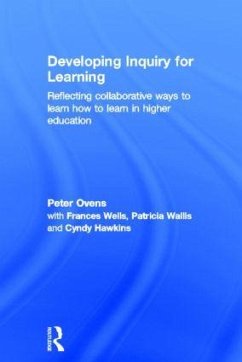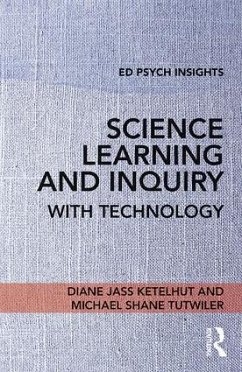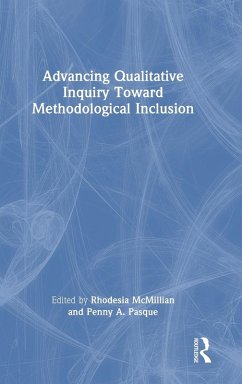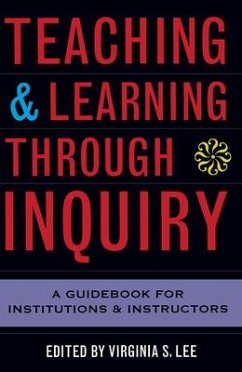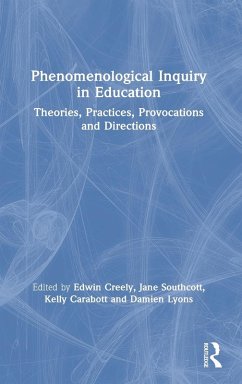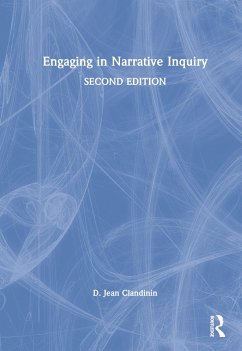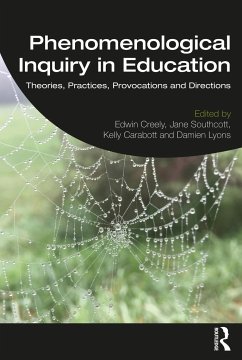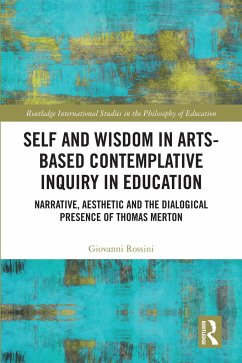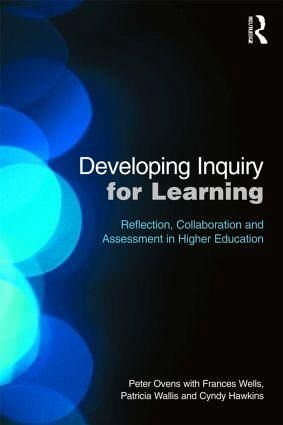
Developing Inquiry for Learning
Reflecting Collaborative Ways to Learn How to Learn in Higher Education
Versandkostenfrei!
Versandfertig in 1-2 Wochen
51,99 €
inkl. MwSt.
Weitere Ausgaben:

PAYBACK Punkte
26 °P sammeln!
Developing Inquiry for Learning shows how university tutors can help students to improve their abilities to learn and to become professional inquirers. An increasing proportion of students entering higher education seem to assume that learning is a relatively passive process. This may be the largest single limitation on their achievement. University tutors need to be able to respond creatively to students' learning needs and difficulties. The modern teaching environment in higher education demands a sophisticated approach to teaching, learning and assessment i.e. the curriculum: its planning, ...
Developing Inquiry for Learning shows how university tutors can help students to improve their abilities to learn and to become professional inquirers. An increasing proportion of students entering higher education seem to assume that learning is a relatively passive process. This may be the largest single limitation on their achievement. University tutors need to be able to respond creatively to students' learning needs and difficulties. The modern teaching environment in higher education demands a sophisticated approach to teaching, learning and assessment i.e. the curriculum: its planning, its development and tutors' professional development. Tutors need fresh ideas about how to challenge students' spoon-fed approach, to enable them to become collaborative, yet independently motivated learners. In the innovative and practically proven approach developed by the authors of this book, students are guided to implement action research into their learning practices and reflections. Using a rolling programme of cyclical inquiries and whole group 'conferences' on improving learning, students write 'patches' on learning development which are then shared across the year group online. Each student's cumulative set of patches, together with their regular reflective writing, provide the basis for assembling a composite final assignment, a 'Patchwork Text', for assessment. This style of curriculum and assessment organisation encourages regular peer feedback and formative assessment, as part of the whole module process. This is a dynamic approach which builds personal confidence within students, both as learners and as professionals. Providing teaching materials and examples of students' responses, including the use of blogs, wikis and discussion boards, Developing Inquiry for Learning analyses and theorises on the deeper characteristics of the difficulties being addressed. With the provision of relevant frameworks of theory and values, readers are amply equipped to adopt, adapt and experiment within their own developments of teaching and curricula. Tutors, particularly programme leaders, and those who are responsible for the quality of student learning across programmes, are challenged in various ways to re-evaluate current provision and are helped to improve it in ways which can be matched to local situations and priorities. Peter Ovens was Principal Lecturer in Professional and Curriculum Development at Nottingham Trent University and is now a Senior Research Fellow at the University of Cumbria. Frances Wells is a Principal Lecturer in Education at Nottingham Trent University Pat Wallis is a Senior lecturer in Professional Studies at Nottingham Trent University. Cyndy Hawkins is a Senior Lecturer in the School of Education at Nottingham Trent University





